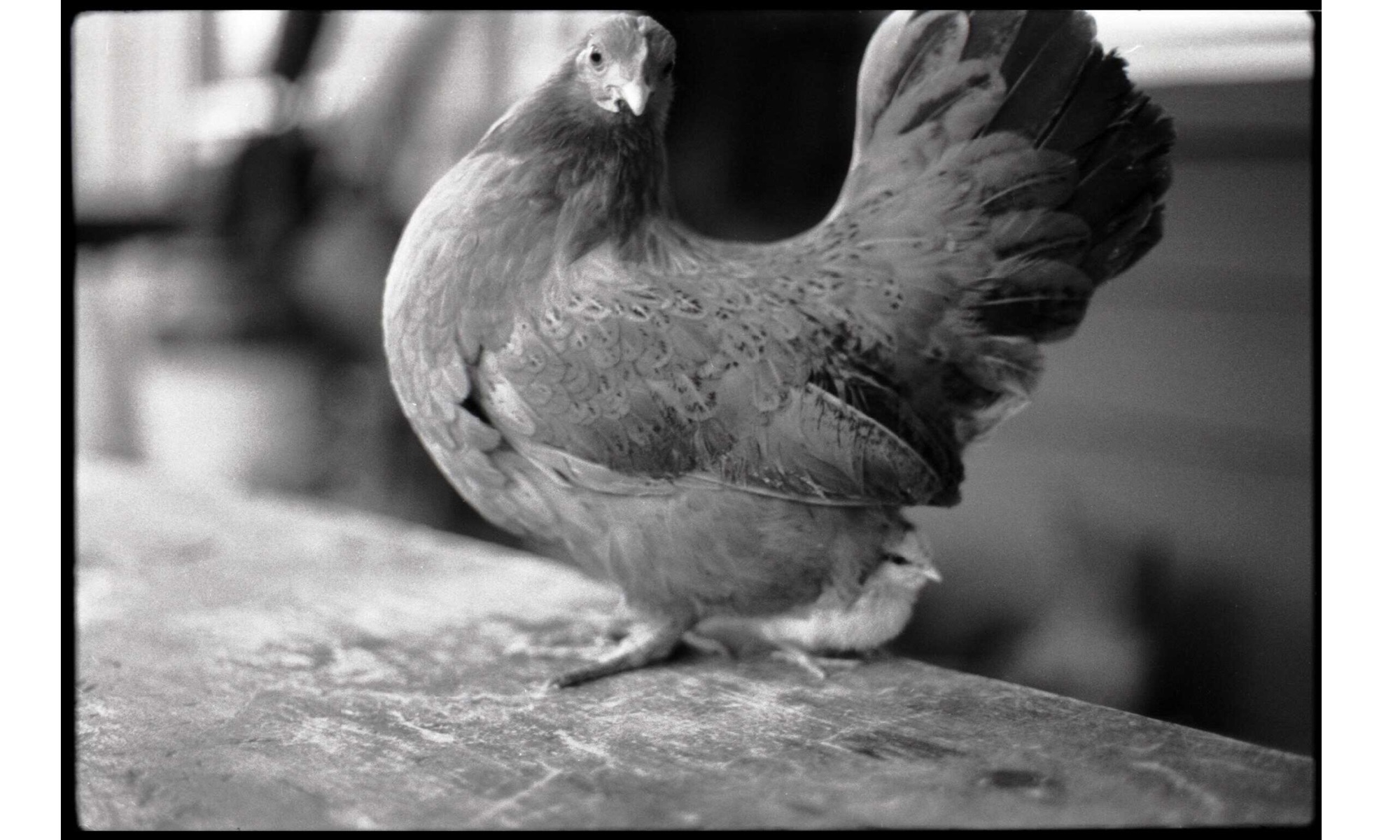Wow… now that we’ve hit the Top 20, all these movies have made such an impression on me and are all outstanding films that i have no reservations about recommending. Cringe-comedies, family dramas, intellectual thrillers, intense dramas… there’s something for everyone here. And the talent both behind and in front of the camera is impressive. And the women outnumber the men in the director’s seat!
#20 – Shiva Baby, directed by Emma Seligman (USA/Canada) – It’s always great to watch a smart, snappy, and funny film where you don’t expect a whole lot, and you end up getting something very special. The film centers on Danielle, a college grad who’s basically trying to figure out her next move. What she’s really doing is spinning her wheels, sleeping with Max, her a sugar daddy to make ends meet. He thinks she’s in law school, her mother things she’s making money baby sitting. When Rachel’s parents insist she join them for the Shiva of… (who was it that died?) she also gets a lot of pressure to circulate, find a man, tell people she’s got things lined up, but most of all… stay away from Maya. Who’s Maya? Well, she just happens to be Danielle’s high school girl friend who is going to law school. Between Maya, neighbors, relatives and all sorts of assorted folks asking why she’s so thin, if she’s found a boyfriend yet, what are her plans, Danielle just wants to get out of there, but then who should arrive but Max, along with his successful shiksa wife, and their colicky toddler, who Danielle is finding out about for the first time.
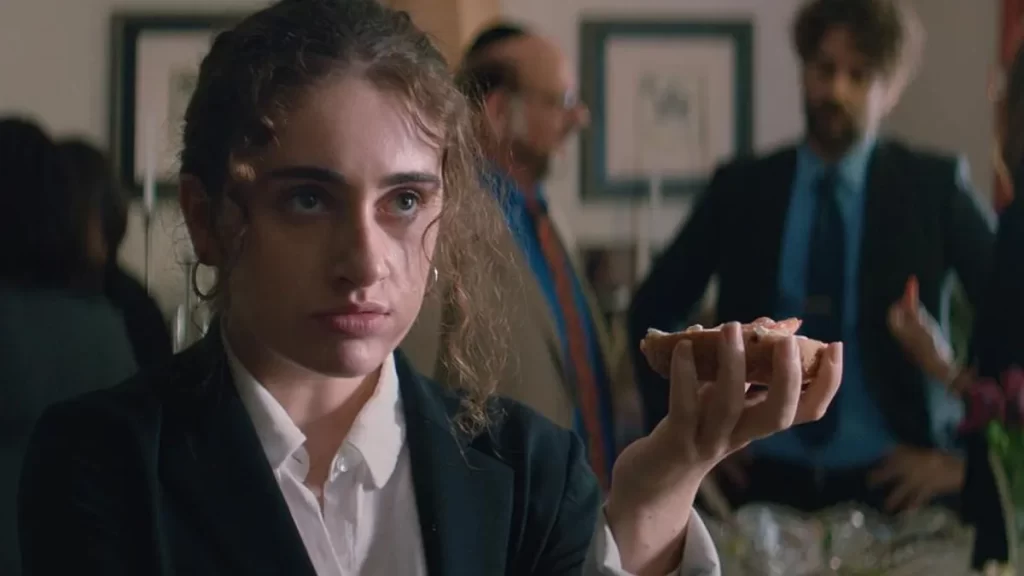
“Writer/Director Emma Seligman nails the Jewish stereotypes down with perfection, the food, the make-up, the claustrophobic feel of the shiva as Danielle navigates through the home trying to avoid various people. Nearly everything that comes out of Danielle is a lie; it’s so second nature to her that she even lies about things she doesn’t have to… and that only digs her deeper and deeper into this cyclical spiral of shame. The cast is perfect. Rachel Sennott (Danielle) and Danny DeFerrari (Maya) are perfect foils for each other. Danielle is such a mess, but she’s a lovable mess and you can’t help but feel for her. Maya may be the only honest person in the room… she has no need to lie, but you do have to get by her attitude first. Polly Draper and Fred Melamed are delightful as Danielle’s parents, and the rest of the Shiva attendees add so much color and personality to the activities, you kind of want to follow each of them through their own storylines, but Seligman keeps the camera moving as Danielle threads her way through the party. It was delightful to see Dianna Agron (Quinn, from ‘Glee’) as Max’s wife, who is no dummy, and catches on pretty quickly to what might be going on. The film ends in one of the most absurd ways imaginable, that you can’t help but laugh while you groan. So much fun.
#19 – The Killing of Two Lovers, directed by Robert Machoian (USA) – There’s an intensity and suspense to Robert Machoian’s THE KILLING OF TWO LOVERS that hits the ground running in the very first scene, where our protagonist, David, stands over his wife, asleep in bed, and another man, pointing a gun at them. From there we follow David’s struggle to cope with separation from his family (in addition to his wife, he’s got a daughter and three sons). David and Niki where married just out of high school, most likely after she got pregnant, and are now in their mid-30’s, together for what feels like a lifetime in rural Utah, the stunning vista of the Rockies in stark contrast with the cramps, squared-off aspect ratio Machoian and cinematographer Oscar Ignacio Jiménez utilize. Machoian doesn’t give away much either… only what we see and hear, and the characters really wear their hearts on their sleeves for the most part. David is clearly in love with Niki, and desperate to come home to be with his family. Niki still loves David as well, but is enjoying their time apart a bit more, exploring other possibilities, and dating another man, much to David’s frustration. The kids are all terrific too. even Jess, the teenager who is given a lot of stiff lines to deliver, but she does so admirably, whether she’s sullenly storming off, of getting her hackles up to defend her parents.
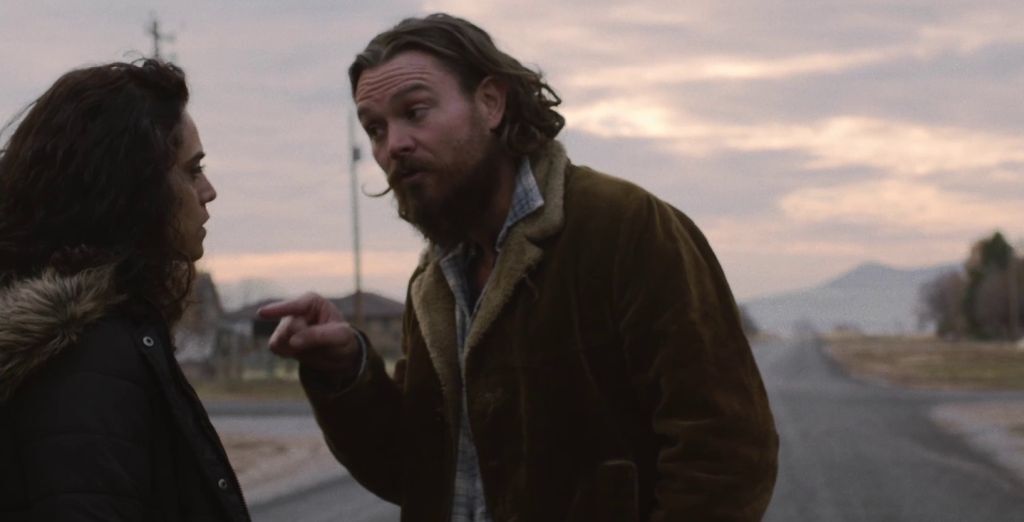
The intensity of emotions and the suspense of the activities is heightened by the static camera Jiménez employs, allowing people to move in and our of the frame, or sometimes mounted on the passenger side of a moving car, so all we can see is the driver. This set up is used particularly well toward the end of the film during a brief, nail-biting scene were it’s difficult to tell what’s going on around a rapidly moving vehicle. The ending wraps up rather neatly on first glance, but digging deeper, it’s thoroughly believable, and depending on the viewer, could go either way — toward optimism or pessimism. Regardless, Machoian turns a somewhat pedestrian domestic drama into a highly-charged suspense film about relationships. Oh yeah… and that sound design is amazing!
#18 – Undine, directed by Christian Petzold (Germany/France) – German director Petzold, has built up quite a following with his last three films (TRANSIT, PHOENIX, BARBARA) and his latest, UNDINE, is a bit of a change of style for him. An undine is a mythical water spirit who becomes human when she falls in love with a man, but is destined to die if he is unfaithful to her. As UNDINE opens, a young woman is at a cafe with her boyfriend Johannes, listening silently as he breaks up with her to be with another woman. The young woman implores him to think this through, because if he goes through with it, he will have to die. Not exactly a threat, but perhaps an act of self-preservation? The woman, whose name happens to be Undine, asks Johannes to remain at the cafe for half an hour while she gives a talk on historic Berlin, after which she will return. When Undine returns to find Johannes gone, she is surprised and a bit lost, so when Christoff, a young man who had attended her talk, approaches her, she barely responds. When a sudden, dramatic accident occurs, that literally tosses the two into each others arms, Undine seems to forget about Johannes and moves on. But myths have certain rules that must be followed, and this one is no exception.
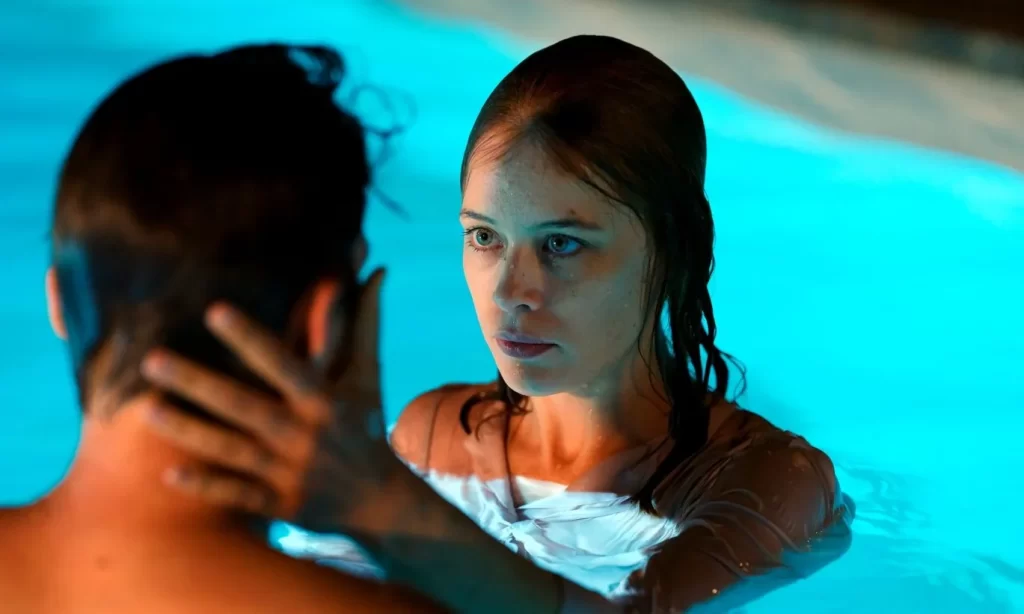
“What keeps this potentially melodramatic romantic fantasy grounded so well is the matter-of-fact, yet slightly otherworldly performance of Paula Beer, and the hyper-realistic setting Petzold situates his fantastic tale. Characters make decisions based on life, not just their heart, so the fact that Undine has a job is important, and she can’t just ignore it to pursue her heart’s desire. Everything is beautifully understated here, but i can actually see the two leads falling in love, which is really lovely. It’s fascinating to be immersed in such a traditionally mythical tale yet have it inhabiting such an ordinary… or perhaps I should say, real world.
#17 – An Old Lady, directed by Sun-ae Lim (South Korea) – It was a bold move for South Korean writer director Lim Sun-ae to tackle elder abuse and rape as the subject of her first film, but a newspaper article about an elderly woman raped by a much younger man inspired her to do so. AN OLD LADY starts artfully and effectively with a black screen, with only dialogue setting up what is clearly an older woman receiving physical therapy from a young man. The dialogue grows awkward, then uncomfortable, before it trails off as the act of violence takes place. When next we see Hyo-jeong, the poised, elegantly put together 69-year-old is with her dear friend and poet Nam Dong-in, helping him at his bookstore. Her posture and actions betray the trauma she has endured and she eventually shares her shame with Nam. She is encouraged by his support, and the two travel to the police to report the crime. It is there when the film’s drama begins to truly unfold as the investigating officers wonder aloud why a young man might rape an old woman. Things grow worse as the investigation unfolds and the perpetrator claims that the sex was consensual, and the clinic at which he works stonewalls the investigation. Hyo-jeong and Nam deal with the frustrating investigation in different ways.
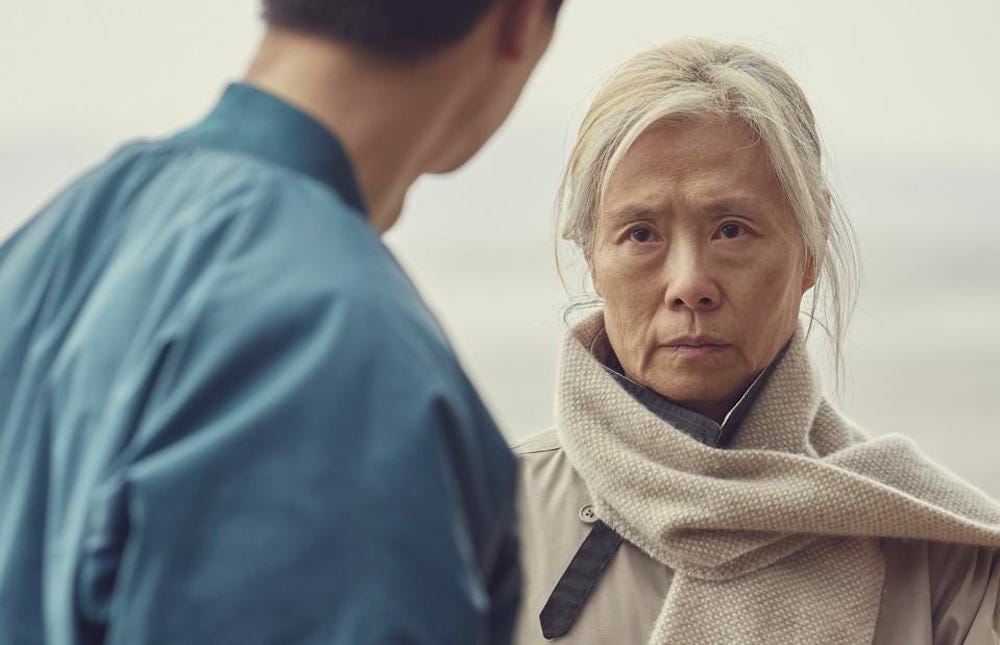
Hyo-jeong begins to examine her past to cope with the range of emotions this act as stirred up within her: shame, frustration, fury, resignation, and ultimately drive. She worries for am estranged daughter, caught up in her own challenging relationship. Meanwhile, Nam being a man of a certain stature, uses his privilege to try and confront Hyo-jeong’s attacker directly, a failure that, while for some wondering why the filmmaker to spend time on a character other than the protagonist, examines a powerful comparison to the way Hyo-jeong ultimately confronts her attacker and finds redemption. That confrontation is both tense and powerful and a testament to Lim’s emerging skill as a director. The film concludes on a somewhat cinematic and hopeful note that maintains the somber tone of the film’s message, but allows for some satisfaction.
#16 – The Lost Daughter, directed by Maggie Gyllenhaal (USA/UK/Israel/Greece) – Bravo to Maggie Gyllenhaal for adapting a complex novel into a visually arresting, and thematically engrossing film in her first time out as a screenwriter and director. Leda is a middle-aged woman visiting a resort in Greece for a solitary getaway, to write. She seems perfect happy to be on her own, and is somewhat brusque to those who try to reach out and engage in small ways. When her peaceful day at the beach is interrupted by the arrival of a large, loud, and intrusive extended family, who take over both physically and emotionally — their every drama broadcast to all around them — Leda does her best to keep to herself and enjoy her solitude. An encounter with the group’s matriarch turns into a bit of a pissing match, and things begin to take a darker turn. When a toddler from the large family goes missing, it strikes a chord in Leda from her younger days raising two daughters, and she is moved to help find their little girl, which she does, becoming a bit of a hero, albeit still mistrusted, by the family.
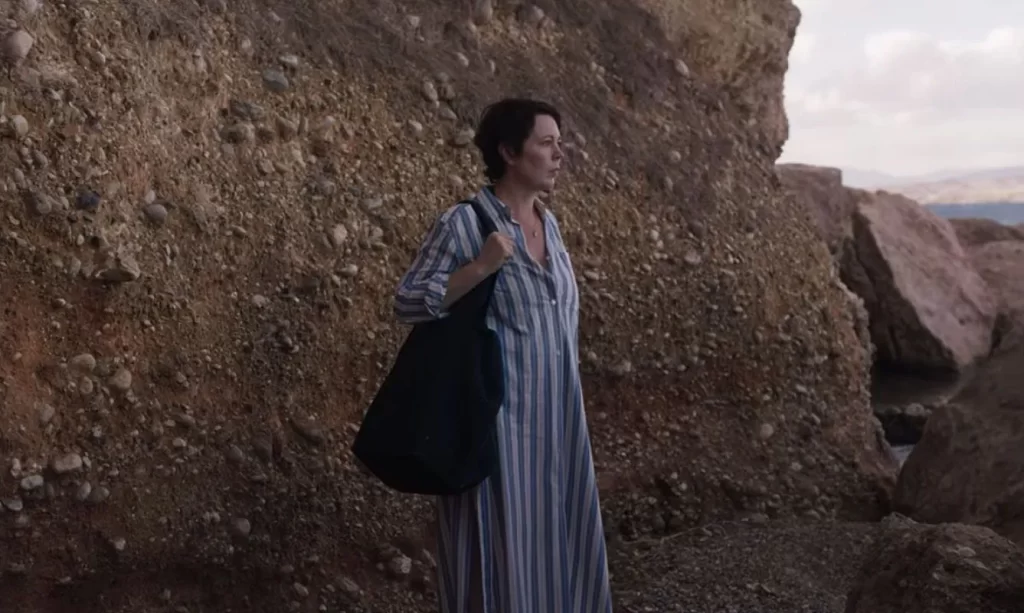
This is just scratching the surface of the complex story Gyllenhaal is telling. The film bounces between Leda’s present to her past, raising her two girls, and feeling confined by motherhood in a way that runs counter to what society tells us is supposed to be the case. Leda grows increasingly paranoid about the behavior of the family even as she becomes more and more entangled in their presence. Gyllenhaal does a great job tightening that paranoia so that the viewer is caught up in it, not knowing if simple actions have grave protest, or are being misread. Olivia Colman and Jessie Buckley are marvelous as Leda in the past and the present, taking a character that may come across as unsympathetic and making her merely human, doing her best to raise her kids, or live her life quietly on her own. Great support is all around with Ed Harris, Peter Sarsgaard, and Dagmara Dominczyk of particular note. With a terrific somewhat ambiguous ending that generated a lot of conversation at our discussion group, THE LOST DAUGHTER left us somewhat divided, but I fell clearly on the positive side, and applaud Gyllenhaal for her assured ability to tackle a difficult subject and create an entertaining and compelling film.
